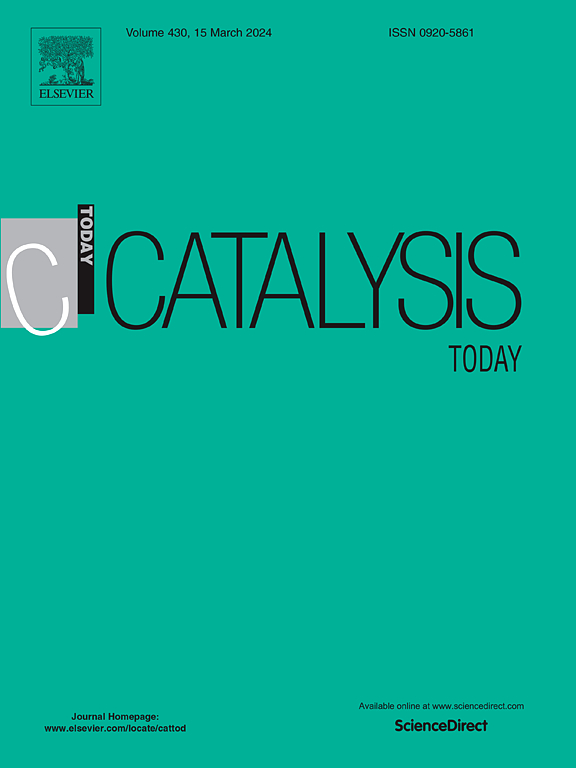Carbon-supported non-noble metal catalysts for efficient synthesis of the biofuel 2,5-dimethylfurfural from 5‑hydroxymethylfurfural in 1-butanol under mild conditions
IF 5.2
2区 化学
Q1 CHEMISTRY, APPLIED
引用次数: 0
Abstract
2,5-Dimethylfuran (DMF), which is one of the most promising liquid biofuels, has garnered significant attention due to its potential to develop the utilization of biomass energy. In this work, its synthesis through the hydrodeoxygenation reaction (HDO) of 5-hydroxymethylfurfural (HMF) has been studied on Ni catalysts supported on various metal oxides and a high surface graphite (HSAG), in a batch reactor, using 1-butanol as a solvent. At 180 °C and under 30 bar H2, the catalytic activity and the predominant reaction route were found to be strongly conditioned by the nature of the support, as well as by the presence of impurities depending on the commercial HMF feedstock employed. The HSAG support turned out to be the most suitable for the HDO of HMF leading to the formation of DMF, via rupture of the C-O bonds. Additionally, the catalytic performance of Co and Cu supported on this graphitic material was studied, being Cu the one that offers the best yields to DMF (95 %), even in the absence of external hydrogen (84 %), confirming that butanol acts as a hydrogen donor in addition of solvent.
求助全文
约1分钟内获得全文
求助全文
来源期刊

Catalysis Today
化学-工程:化工
CiteScore
11.50
自引率
3.80%
发文量
573
审稿时长
2.9 months
期刊介绍:
Catalysis Today focuses on the rapid publication of original invited papers devoted to currently important topics in catalysis and related subjects. The journal only publishes special issues (Proposing a Catalysis Today Special Issue), each of which is supervised by Guest Editors who recruit individual papers and oversee the peer review process. Catalysis Today offers researchers in the field of catalysis in-depth overviews of topical issues.
Both fundamental and applied aspects of catalysis are covered. Subjects such as catalysis of immobilized organometallic and biocatalytic systems are welcome. Subjects related to catalysis such as experimental techniques, adsorption, process technology, synthesis, in situ characterization, computational, theoretical modeling, imaging and others are included if there is a clear relationship to catalysis.
 求助内容:
求助内容: 应助结果提醒方式:
应助结果提醒方式:


